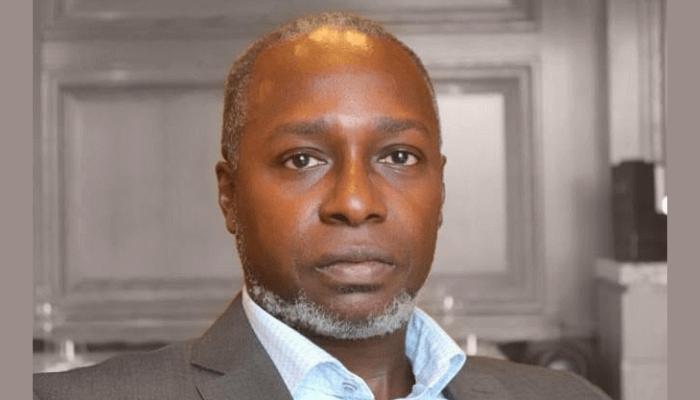Business
FAAC: NUPRC records N459.6bn revenue shortfall despite 3% rise in monthly remittance


By Obas Esiedesa, Abuja
The Nigerian Upstream Petroleum Regulatory Commission (NUPRC) has reported a revenue shortfall of N459.6 billion against its August 2025 budgetary target of N1.2 trillion, after remitting N745 billion to the Federation Account.
In its report to the Federation Accounts Allocation Committee (FAAC) for September 2025, the Commission disclosed that its revenue collection stood at N745.21 billion in August, representing a 61.85 percent performance against the monthly budget benchmark of N1.204 trillion.
On a month-on-month basis, the remittance reflected a 3.05 percent increase from N723.17 billion recorded in July.
“Total collection increased by N22.04 billion equivalent to 3.05 percent when compared with July 2025. The increase in collection for the month of August 2025 can be attributed to a revenue drive that led to improvement in almost all the revenue heads,” the report noted.
An analysis of the submission, however, showed that the underperformance was driven largely by poor royalty inflows from oil and gas. While the monthly budget projected N1.144 trillion from royalties, only N682.28 billion was realised in August, leaving a gap of N461.89 billion.
So far, NUPRC said it has transferred N5.475 trillion through the Central Bank of Nigeria to the Federation Account between January and August 2025.
It added: “The Commission’s performance from January to August 2025 is N7.103 trillion, inclusive of NNPC Limited JV and PSC royalty receivables of N1.050 trillion for the period, as well as Project Gazelle receipts of N730.24 billion for November 2024 (received in January 2025), and from January, March to June 2025.”
Two days earlier, NUPRC reported that Nigeria’s upstream petroleum sector recorded an average daily production of 1.63 million barrels of crude oil and condensates in August 2025, up from 1.58 million barrels per day (bopd) in August 2024.
The Commission’s Crude Oil and Condensate Production Report for August 2025 indicated that crude oil output stood at 1.43 million bopd, a 5.47 percent increase from 1.36 million bopd produced in August last year. Condensate production, however, fell to 197,229 bopd from 220,435 bopd in August 2024.
It noted that Nigeria’s August crude oil production represented 96 percent of its OPEC quota of 1.5 million bopd, reflecting the country’s improving capacity to meet output targets.
The post FAAC: NUPRC records N459.6bn revenue shortfall despite 3% rise in monthly remittance appeared first on Vanguard News.
Business
LCFE lists N23.4bn Eko rice contracts


…to usher in new era for Nigeria’s commodities market
By Peter Egwuatu
The Lagos Commodities and Futures Exchange (LCFE) has listed Eko Rice Classic Contracts valued at N23.4 billion, marking a major milestone in the transformation of Nigeria’s agricultural and commodities sectors.
A total of 3,000 contracts were listed at an initial price of N60,000 each, appreciating by 10% to N66,000 at the close of trading on Monday , a strong indication of investor confidence and market potential.
This landmark listing highlights LCFE’s ongoing commitment to reforming Nigeria’s commodities ecosystem by fostering greater transparency, liquidity, and investment opportunities across the value chain.
“Nigeria is an agrarian nation, yet for many years, we lacked a commodities exchange that truly reflects the value of our natural resources. Today’s listing marks a new chapter in our economic history.The launch of Eko Rice Paddy Contracts is a collective step towards diversifying our economy away from crude oil. It will strengthen the Made-in-Nigeria brand, promote standardisation, and ensure quality control. I look forward to the day when countries like Ghana, Mali, and Côte d’Ivoire import rice from Nigeria.” said Dr. Emomotimi Agama, Director General of the Securities and Exchange Commission (SEC)
Lagos State Commissioner for Agriculture, Abisola Olusanya, speaking on behalf of Governor Babajide Sanwo-Olu, praised LCFE for the initiative. “This listing demonstrates that a well-structured agricultural sector can drive economic growth and generate sustainable employment for millions. Eko Rice will play a vital role in reducing rice importation and boosting Nigeria’s foreign exchange earnings”, she asserted.
Echoing the sentiment, Lagos State’s Special Adviser on Agriculture and Food Systems, Dr. Oluwarotimi Fashola, applauded LCFE for introducing innovation and building trust within the commodity market. He emphasized that agriculture in Nigeria should be seen not only as a means of sustenance but also as a viable investment opportunity.
Akin Akeredolu-Ale, Managing Director and Chief Executive Officer of LCFE, described the Eko Rice Classic listing as a pivotal development for Nigerian agriculture. “This is more than just a contract listing — it’s a watershed moment for Nigeria’s commodities market. The ₦23.4 billion Eko Rice Classic Spot Contract shows that agriculture is not only viable but bankable. It sets a benchmark for quality and reinforces the vital role of commodity exchanges in national development.”
In his welcome remarks, LCFE Chairman Onyenwechukwu Ezeagu stated that the listing sends a clear message to the global community, Nigerian farmers, processors, innovators, and brokers are evolving and ready to compete on the world stage.
Delivering the vote of thanks, LCFE Director Sam Onukwue described the listing as a powerful endorsement of Nigeria’s commodity market and a bold statement about the future of the nation’s commodity ecosystem.
The post LCFE lists N23.4bn Eko rice contracts appeared first on Vanguard News.
Business
How CSCS drives innovation through technology


By Peter Egwuatu
In an era defined by rapid digital transformation, the Central Securities Clearing System (CSCS) PLC, has emerged as a key driver of innovation within Nigeria’s capital market.
Leveraging cutting-edge technology and forward-thinking strategies, CSCS is streamlining operations, enhancing market transparency, and fostering investor confidence. From digital clearing and settlement solutions to cybersecurity advancements and automation, CSCS is not only modernizing infrastructure but also positioning Nigeria’s capital market for greater competitiveness on the global stage.
The Company, in a statement stated : “With an expanding domestic investor base, innovative product offerings, and growing alignment with international best practices, Nigeria’s capital market is now gaining attention not just across the continent but globally. Much of this progress can be traced back to CSCS’s deliberate efforts in leveraging automation and innovation to boost confidence, transparency, and competitiveness.
*One of the most significant milestones in Nigeria’s capital market transformation is the transition to a T+2 settlement cycle, which shortens the time between trade execution and final settlement from three days (T+3) to two (T+2). Scheduled to take effect on November 28, 2025, this move aligns Nigeria with developed markets such as the United States, Germany, and Japan, and positions the country among the early adopters in Africa. Notably, the Victoria Falls Stock Exchange (VFEX) and the Zimbabwe Stock Exchange (ZSE) transited to T+2 on April 14, 2025, making Nigeria one of the first African countries to implement the T+2 model, signalling a new era of efficiency and global integration for the continent’s capital markets”.
Haruna Jalo-Waziri, Managing Director/CEO of CSCS Plc, described the shift as a game changer: “The transition to T+2 is a significant milestone for the Nigerian capital market and a testament to the collaborative spirit of our ecosystem. This shift not only aligns our market with global best practices but also enhances efficiency, resilience, and investor trust.”
He said: “The change is being led by the Settlement Cycle Review Committee (SCRC), coordinated by CSCS and comprising key stakeholders from across the market. The Committee has undertaken a multi-phase review, benchmarking against jurisdictions that have implemented T+2 or even T+1, identifying gaps in Nigeria’s current T+3 structure, and outlining a roadmap for a smooth and secure transition.
CSCS’s readiness for T+2 stems from years of investment in digital infrastructure. From real-time settlement platforms to blockchain-based processing, the company has focused on improving operational speed, reducing errors, and enhancing risk management.
Its automation capabilities allow for high-volume transaction processing with minimal human intervention an essential advantage as Nigeria’s capital market enters the realm of high-speed and high-frequency trading.
Earlier this year, CSCS launched RegConnect Version 2, a major upgrade to its registrar-facing platform. The new version supports omnichannel data exchange, advanced API integration, and real-time dashboard monitoring, making data sharing between market participants faster and more reliable.
In July, CSCS introduced the Custodian Portal, a secure, user-friendly solution that empowers custodians to manage portfolios, access real-time data, and oversee trade operations more efficiently. The platform operates on a flexible subscription model, giving custodians digital tools that improve transparency and reduce operational bottlenecks.
Demonstrating its commitment to financial inclusion, CSCS recently launched the USSD code *7270#, a service that enables investors to access critical investment information without internet access. Using any mobile phone, investors can retrieve their Clearing House Numbers (CHN), check their Direct Cash Settlement (DCS) status, view stock holdings, and confirm account details.
“This service empowers every investor, regardless of location or resources, to stay informed about their investments. At CSCS, we believe that accessibility and inclusivity are key to driving broader participation and economic growth”, Jalo-Waziri noted.
Continuing, he said: “While T+2 marks a historic achievement, CSCS is already laying the foundation for even faster settlement cycles. With countries like India moving to T+1 and exploring T+0 (same-day settlement), Nigeria is poised to follow suit thanks to its ongoing digital advancements and regulatory foresight.CSCS’s systems already support pre-trade and post-trade optimisation, as well as multi-exchange compatibility, features that narrow bid-offer spreads and improve market liquidity”.
“ However, further advancements will require significant investment and coordination across the ecosystem. Brokers, custodians, fund managers, and other stakeholders will need to upgrade infrastructure, enhance data systems, and implement robust risk management frameworks to align with the new standards.
Despite its benefits, implementing T+2 comes with challenges. A shorter settlement window means counterparty risk becomes more pronounced, especially in volatile trading periods. There’s also operational risk, as tighter timelines increase pressure on systems and staff, potentially leading to errors or missed settlements.
Liquidity constraints could also arise, particularly for smaller investors or during periods of low market activity. Moreover, the cost of upgrading legacy systems and ensuring regulatory compliance may be significant for some participants.
To address these issues, CSCS and the SCRC have conducted extensive risk reviews and stakeholder impact assessments, offering guidance and training to ensure the market is ready for the shift. The focus remains on building resilience, transparency, and long-term sustainability.
As Africa’s financial landscape evolves, Nigeria’s Central Securities Clearing System (CSCS) is setting a powerful example of what’s possible when innovation meets infrastructure. Through the strategic deployment of technology, CSCS has transformed the Nigerian capital market into a more efficient, secure, and globally aligned ecosystem. This progress not only strengthens Nigeria’s financial foundation but also positions CSCS as a replicable model for other African markets striving to build resilient, tech-enabled financial systems that can compete on a global scale” the statement noted.
The post How CSCS drives innovation through technology appeared first on Vanguard News.
Business
Nsibidi Institute to display inaugural festival on Nigerian popular culture


By Erebi Aboso
All is now set for Nsibidi Institute to showcase the heritage and social culture of Nigerian popular culture.
The Institute has concluded plans to host a three-day 2025 inaugural festival on Nigerian popular culture in Lagos, Nigeria.
The event scheduled for September 26-28, 2025 with a theme: “The Past in the Present Around us ”A retrospective celebration of Nigerian Popular Culture,” is taking place at Quintessence, 285, Akin Olugbade Street, Victoria Island, Lagos by 12 noon.
Participants are to partake in a symposium, exhibition, film screening, photo exhibition, among others at the 2025 inaugural festival by Nsibidi Institute.
Director of the Nsibidi Institute, Mr. Ed Keazor in a statement said, “The Festival looks to explore the strong affinities between between Nigerian contemporary and historical popular cultures, the objective is to demonstrate the vibrant continuity of our social history. We shall explore this through film, photo and art exhibitions, performance and interactive conversations.”
However, the opening day keynote address titled, “Heritage and Future in the Past” to be delivered by Director-General, National Council for Arts and Culture, Ojinnaka Obi Asika.
A symposium titled, “ The Nigerian popular press: A driver of Heritage and social culture” to be moderated by Aduke Gomez with panelists that include: Jahman Anikulapo; C,. Don Adinuba. Freda Olatunbosun and Micheal Effiong James.
Part of the exhibition for the opening day is on the first century newspaper advertising (1863-1963) and film screening based on Lagos: the birth of a city style (1861-1967) by Muni and Ed Keazor.
“Hubris: A Brief Political History of the Nigerian Army,” with the theme, “Military Rule and Social Impact” will be the center of book discussion. The author of the book, Major-General Tunde Akinkunmi (RtD), will be in conversation with Mr. Yemi Candide-Johnson SAN.’
In the evening of the opening day, there will be a celebration of Don Barber, “A life Behind the Lens”. Don Berber will lead the conversation and will be moderated by Dayo Adedayo.
According to the programme, the second day of the event will be taking place at Didi Museum, 175 Akin Adeshola Street, Victoria Island, Lagos.
On the closing day, there will be awards and recognitions among other activities highlighted to mark the 2025 festival by Nsibidi Institute a success. The closing day ceremony will be taking place at Quintessence, 285, Akin Olugbade Street, Victoria Island, Lagos by 12 noon.
The Nsibidi Institute is an independent research and cultural organisation based in Lagos, Nigeria. Its work centers on preserving, exploring, and reimagining indigenous knowledge systems, particularly those rooted in Nigerian history, language, and identity.
The post Nsibidi Institute to display inaugural festival on Nigerian popular culture appeared first on Vanguard News.
-

 Sports2 days ago
Sports2 days agoPaul Merson says Chelsea’s model doesn’t allow them to buy a top goalkeeper asks if squad is capable of winning Premier league | Football News
-

 Metro2 days ago
Metro2 days agoEstate agent’s murder: Fugitive suspect arrested while seeking passport in Lagos
-

 Politics2 days ago
Politics2 days agoRivers: ‘I don’t see Fubara joining APC’ – Ifetayo
-

 Tech2 days ago
Tech2 days agoGoodnotes collaborative docs and AI assitant to cater to professional users
-

 Entertainment3 days ago
Entertainment3 days agoHow Veekee James Turned One Look Into a Statement
-

 Entertainment3 days ago
Entertainment3 days agoToyin Abraham Just Reminded Us That Polka Dots Are Always in Style
-

 Entertainment3 days ago
Entertainment3 days agoStyle, Swag and Power! Tiwa Savage Unleashes Her Mogul Era on HUNGER Magazine
-

 Sports2 days ago
Sports2 days agoWolves through with two-goal win over Toffees





